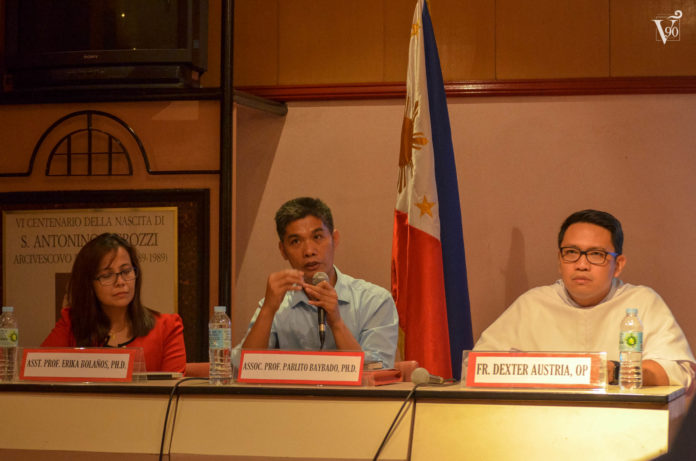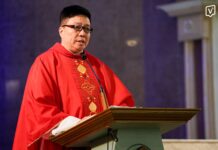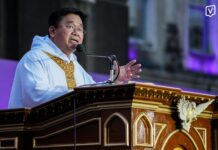THEOLOGICAL researchers urged the religious to adapt to the postmodern language of the youth in their evangelization efforts.
Alarmed by the increasing number of youth converting to religious sects because of “jamming worship,” Mary Erika Bolaños encouraged the clergy to follow St. Paul’s self-leadership, which adapted the message of the Gospel to people’s culture.
“When he saw the people [with] a lot of gods, he did not at all reprimand [them]. He adapted, he was able to take a look at the culture. It does not mean we have to use theological words to them, it is simplifying the theology,” Bolaños said.
Bolaños reminded seminarians to understand people’s backgrounds and beliefs and reach out to the youth through everyday language.
“The sacrifice of studying, translated into the culture of our students, is a very important aspect of how we can shepherd students. Translate our words into how the young can fully understand it,” she said.
Pablito Baybado, an associate professor in UST who teaches theology, said recognition and respect for other religions were essential in preventing conflicts, such as those in Mindanao.
“The first challenge is an internal critic. I think that is what we need to do first – whether, in our religion, there is a possibility of appreciating the otherness of the other. First, you have to be committed to your faith, but you do not at all negotiate that,” he said.
Fr. Dexter Austria, O.P. encouraged people to look at themselves as sinners to give justice and relate to others.
“We have to look at ourselves as sinners because sometimes we tend to uplift ourselves. We are righteous. I am the one to be saved. We have to look at the justice of God that we have to judge ourselves and not judge other people,” he said.
Austria said human conflicts should be resolved through understanding the concept of justice according to God’s mercy and in hope for solidarity.
“In the society, we always refer to justice as simply as doing good and avoiding evil. But there is a concept of justice in the eyes of God. It’s not just what you have done. You do not just work for your justice alone, you have to work for the salvation of the person beside you,” he said.
The event, titled “Second Academic Discourse,” was hosted by the Center for Religious Studies and Ethics as part of their advocacy to address issued confronting the Church, society, faith and morals.














